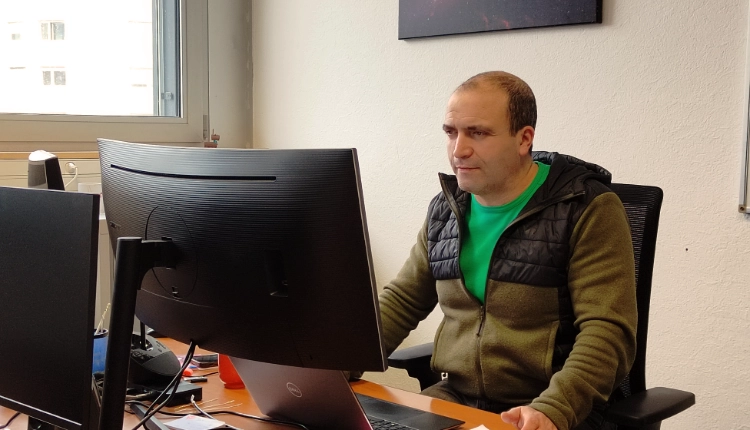Accueil » Interview of Prof. Ould-Abdeslam, Coordinator of Project ASIMUTE

Project ASIMUTE is a European multidisciplinary research project that gathers women and men from various walks of life. Their experiences may be different but the people involved in the project are committed to the advancement of science. Let’s learn about their personal paths and motivations through a series of portraits.
For this first installment, Project ASIMUTE coordinator, Pr. Ould-Abdeslam, accepted to answer our questions.
Question 1: What is your personal path ? What led you to have a scientific career ?
By definition, research implies an unknown but I wanted our results to have fast, real-world impacts
Project coordinator: After the completion of the previous project (Project Smart Meter Inclusif, which gave us the opportunity to develop a smart meter device that helps households optimize energy consumption), we collected consumption data from devices that we had set up in experimental buildings. Thanks to these, we gathered our own data, that will increase in the future.
On a sociological level, we have gathered a load of data thanks to our current societal studies (WP3 and WP4). We actually have collected the answers of a citizen sample to a sociology survey. This gives us an idea of what could impede the use of a smart meter device within a household. These data are of the utmost importance because they give us the opportunity to either balance or change the use of our device.
On a technological level, Work package 10 has been developing a solution that aims at optimizing an electric vehicle battery’s self-consumption. This solution successfully passed the reviewing process of Journal of Energy Storage, a reknown qualitative scientific review. The article, submitted by Hadi Mawassi, Gilles Hermann, Lhassane Idoumghar and I, can be found on the Internet (link).

Project coordinator: A large majority of Project ASIMUTE is funded by the European Union, through the Interreg program, and also by the Swiss confederation and 4 of its cantons (Basel-City, Basel-Countryside, Jura and Aargau). Moreover, from the onset of the project, the academic partners committed to funding a part of the project and to offering their platforms and labs for free. This is an investment even though it isn’t a financial one. And I think it is important to highlight it.
Another source of investment, which is not direct, comes from our associate partners. There is no funding involved but they may get involved in various ways. For instance, they can open the doors to one of their facilities, provide counsel or their input.
As you can guess, the project members enjoy having these various investment sources.
Tuesday, March 25, the IRIMAS Institute and Prof. Ould-Abdeslam had ...
On December 4, the partners of Project ASIMUTE, which is ...
On November 26 and 27, the Be 5.0 Industries du ...
Copyright © 2024-2025 IRIMAS Institute | Université de Haute-Alsace